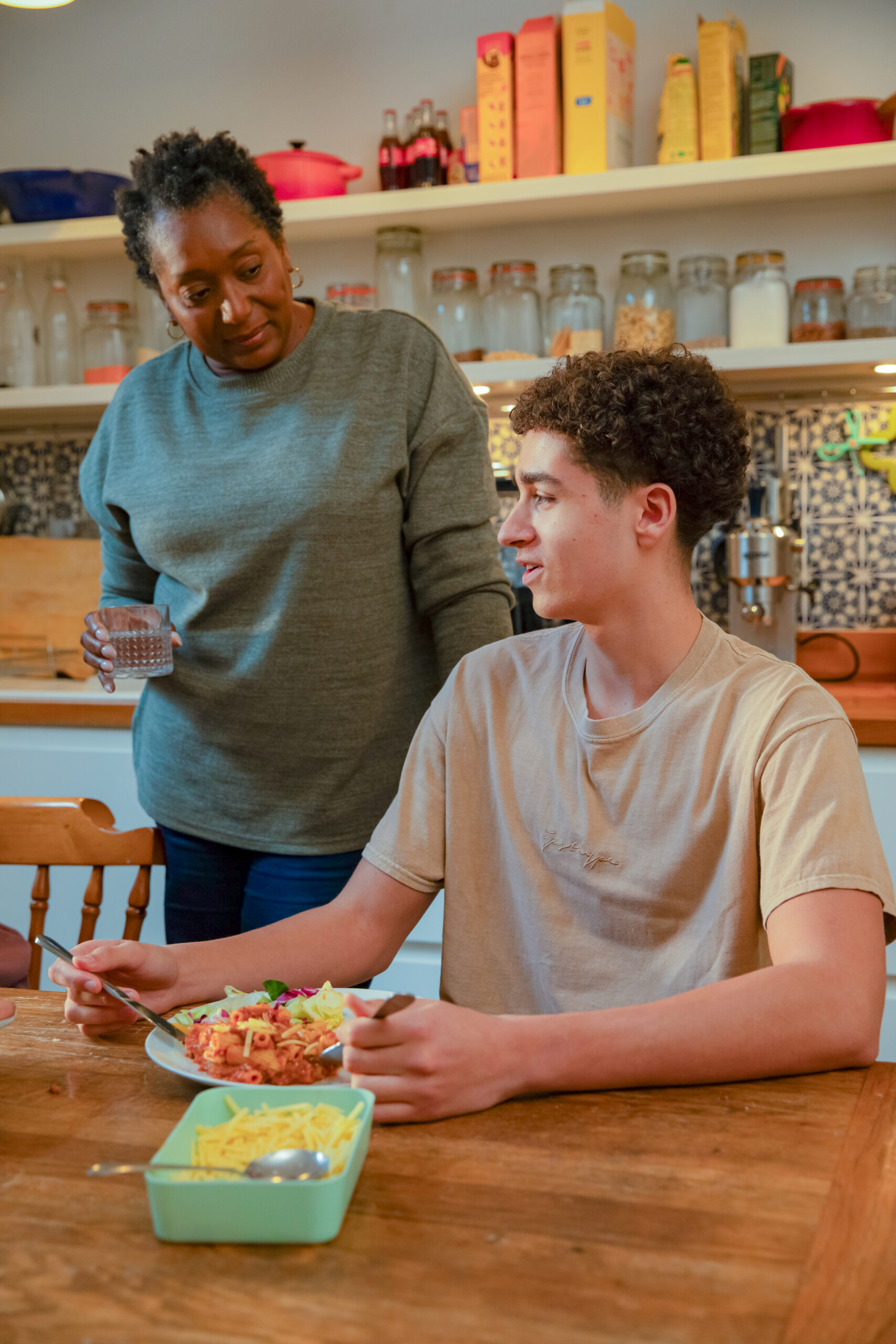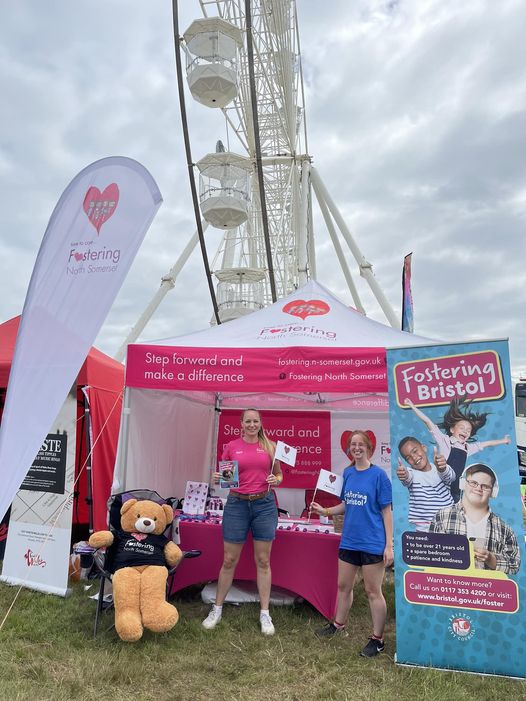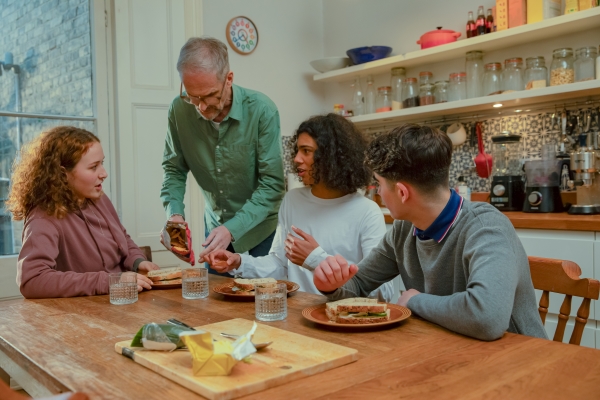Welcome to the third and summer edition of our Fostering South West newsletter.
As August has drawn to a close and it is almost time for schools and universities to restart, we want to share with you a story from a foster carer about their favourite fostering moments, details on what to expect from Skills to Foster training and the events our partner councils have confirmed over the coming period.
So, no matter where you are in your fostering journey we hope you’ll enjoy hearing more. Don’t forget, we’re here for you whenever you feel ready to take the next step, or, if you just want some of your questions answered.

Why we need local council foster carers
Considering fostering but not sure who you should foster for? Choosing to foster for your local council through Fostering South West has a range of benefits to you and looked after children including;
- Keeping children local – Allowing them to continue to live in the community they know and where they feel safe, with as little change as possible. Leading to more positive outcomes for children.
- Community Focus – Fostering with your local council allows you to support children within your own community. This can help maintain the child’s connections with their local area, schools, friends and family.
- Support and Resources – Local councils typically provide robust support networks, including access to social workers, training programmes, and local resources. This can be particularly beneficial for new foster carers.
- Training and Development – Local councils often offer comprehensive training programs tailored to the needs of their foster carers, ensuring you are well-prepared and supported in your role.
- Work with a not-for-profit – As local councils, we are proud to operate as not-for-profit entities. Acting with the best interests and needs of the children we care for and our foster carers at the heart of everything we do.
- Increased speed of matching – Local councils often prioritise finding children homes with their own foster carers first. This means there is often little time your home would have an empty bed.
Why we foster teenagers for Dorset Council
“We choose to foster teenagers because we like how they can be upfront. Because they are older, you can explain things more clearly to them and they can often share how they are feeling more easily.
“We’ve fostered children of many different ages, but teenagers work best for our family. My wife and I both work, and fostering older children fits with our lifestyle. We can keep a quality of life that we would not have with a younger child. Their independence allows us time to still do other things that are important to us.”
You can foster children of all ages with your local council, from teenagers to newborns and expectant parents, providing them with a safe and nurturing environment during their development.


What can you expect from your Skills to Foster training
This is a training programme designed for individuals who are interested in becoming foster carers. This training is essential because it equips prospective foster carers with the knowledge and skills they need to provide a safe, nurturing, and supportive environment for children and young people in their care.
Here are some key aspects of the Skills to Foster training:
- Understanding the Role – The training helps participants understand what it means to be a foster carer, including the responsibilities and challenges involved.
- Child Development and Needs – It covers important topics related to child development, trauma, and the specific needs of children in foster care. This includes understanding attachment styles and how to support children who have experienced trauma.
- Safer Caring – Participants learn about creating a safe environment for children, including strategies for managing risks and ensuring the well-being of both the children and the foster family.
- Working with Others – The training emphasises the importance of the team around the child, and working collaboratively with social workers, birth families and other professionals involved in the child’s life.
- Identity and Diversity – It includes modules on understanding and respecting the diverse backgrounds and identities of children in foster care, promoting inclusivity and equality.
The training is typically delivered over a few days, in person or online. It often includes interactive sessions, group discussions, and real-life scenarios to help participants gain a comprehensive understanding of fostering.
Find out more about the different stages of the fostering application process below.
Fostering events in September
Thank you to everyone who came to see us at our events over August, it has been great to meet so many of you and share more about fostering from our local council teams.
Our partners have another busy month of both in-person and virtual events in September. Use our handy map view to see which ones are nearest to you!
Take the opportunity to go to an event, chat with foster carers and ask fostering teams any questions you may have. Our Fostering South West team will be attending some of these in partnership with our south west local councils.
Click the button below to find events suitable for you. Make sure to check back regularly as this page will be updated.


Monthly myth buster
Throughout the course of our newsletters, we want to give the spotlight to a common misconception in each edition. In this edition it is that your parental status will impact your ability to become a foster carer.
This is a common myth, the reality is quite different. Foster carers’ parental status does not effect their ability to foster. You can be a foster carer regardless of whether you have children of your own. Children of foster parents play a huge role in helping foster children settle in by offering companionship, creating a sense of normalcy, and providing a welcoming and supportive environment.
If you have children living with you, they will be included in the assessment process and supported throughout your fostering journey. If you have children living elsewhere, they will also be involved in the assessment process. This will be approached sensitively and in an age-appropriate way.
Our recommended read
“Fifty-One Moves” is a powerful memoir by Ben Ashcroft, who shares his personal journey through the foster care system. The book details his experiences as he moved through 51 different placements, highlighting the challenges and struggles he faced along the way. Ben’s story is one of resilience and hope, offering a unique perspective on the foster care system from someone who lived through it.

Keep in touch with us
Don’t miss out on our fresh content across our social media channels! Follow them via the buttons below.
